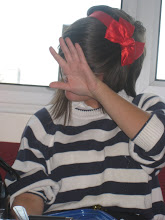The text seemed to talk about, when an author writes, do they portray themselves? This linked to designers as well.
Do they create work for themselves or is it all for society?
A quote at the beginning makes you think whether it's the author talking of his own opinions or whether he's describing society? The paragraph describes writing as something you get lost in. As soon as you apply something as a story - it's possible the situation can loose the reality and when someone tells a story, you judge them on how they tell the story - not what they're actually saying. In the text we questioned who the authors voice is? What role does the persons name have?
If we look back in time, we used to not know who wrote what? ...
On the second page it talks about writer expressing their own views/opinions in their writing - and how their writing is effected by their own lives, tastes and passions.
A word we picked out and became an integral part of what it was about was 'ethnographics', this being ...'the study of individual human societies'.
But before the workshop, I has read the Rick Poyner - First Things First texts which did interlink with our text and also others that groups had read. This text describes design as too commercial, seems to say that there's too much effort on triviality. A key quote: 'Design was in danger of forgetting It's responsibility to struggle for a better life for all'.
From reading the Foucault text, I found that it talks of the modernist movement giving privileges to the 'author' - and this requires a quest for originality. Examples would be Van Gogh/Pollock ( It's art because he made it). All about the 'name'. This seems to tie in well with 'The Death Of The Author' - Roland Barthes. The ' name' situation happens in literature too, an example of this is the hype around Dan Brown.
Banksy also becomes 'semi-legal and privileged. Writing and authoring are two very different things. The text seems to relate graphic designers as 'authors'. Warhol is another example of the 'name' - all his stuff was factory produced!
But are ancient texts without 'authors' more authentic? ...The bible?
The 'Designer As The Author', seems to portray known scientist V unknown scientist. Is it all about the clients message? Does the text project ideas about modernism? Should we be bothered who's designed something?
The text by Papanell - 'Social Change', suggests that designers could make a difference but don't choose to. Its seems to have a totally different attitude to the other texts. Also saying that only a fleet few actually get to become designers? ... Market competition does not allow for ethical design.
All these texts question the 'Send and Receive' brief.
How do you design FOR people and not at them?
You are alienated by the things which are targeted at you - (Myths of Design).
Christian spoke of 'the triangle' -
Practitioner WORLD
(YOU) (Your Group/Organisation)
Critical Discourses
'I just need to think about how to join the dots'.

No comments:
Post a Comment